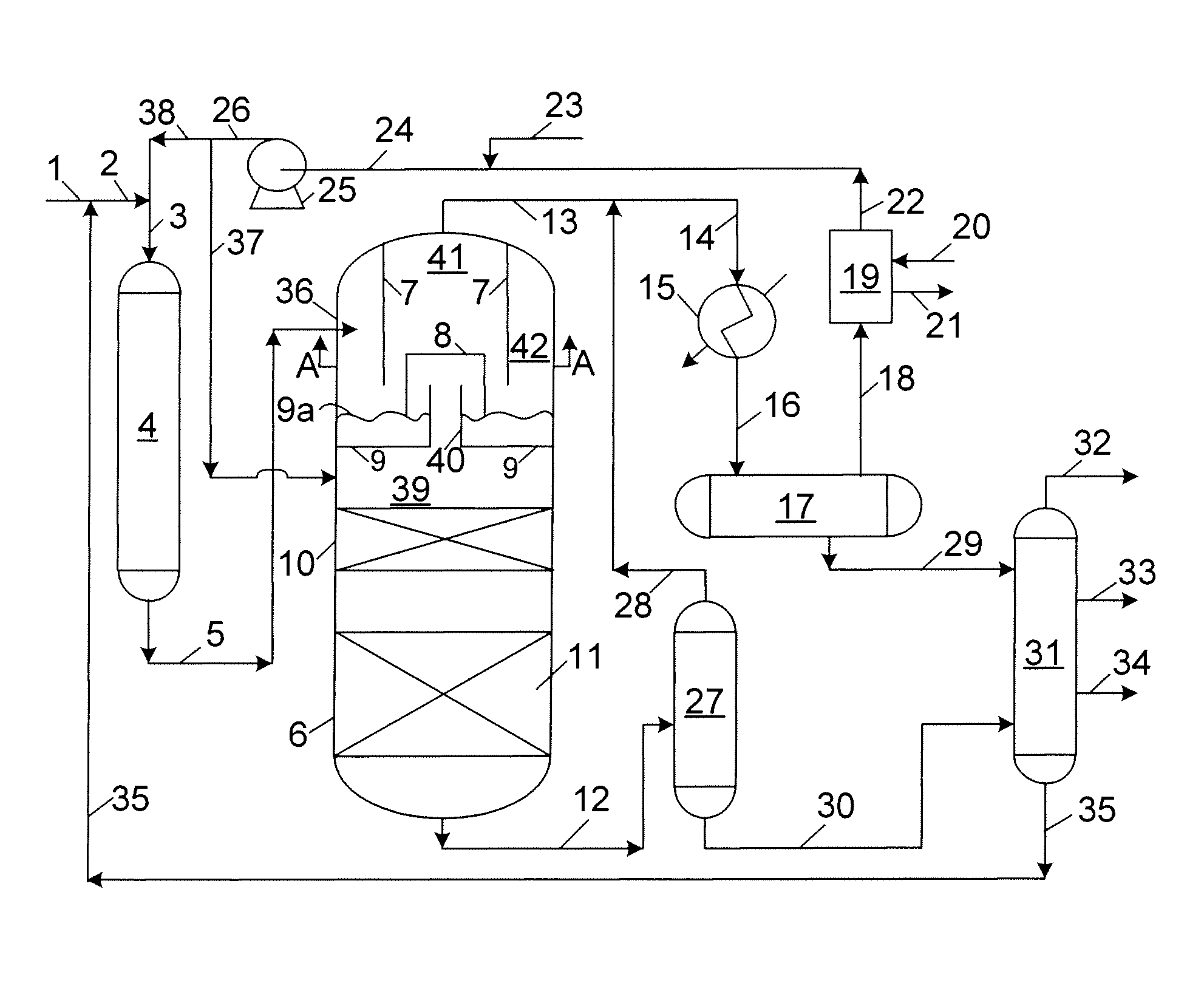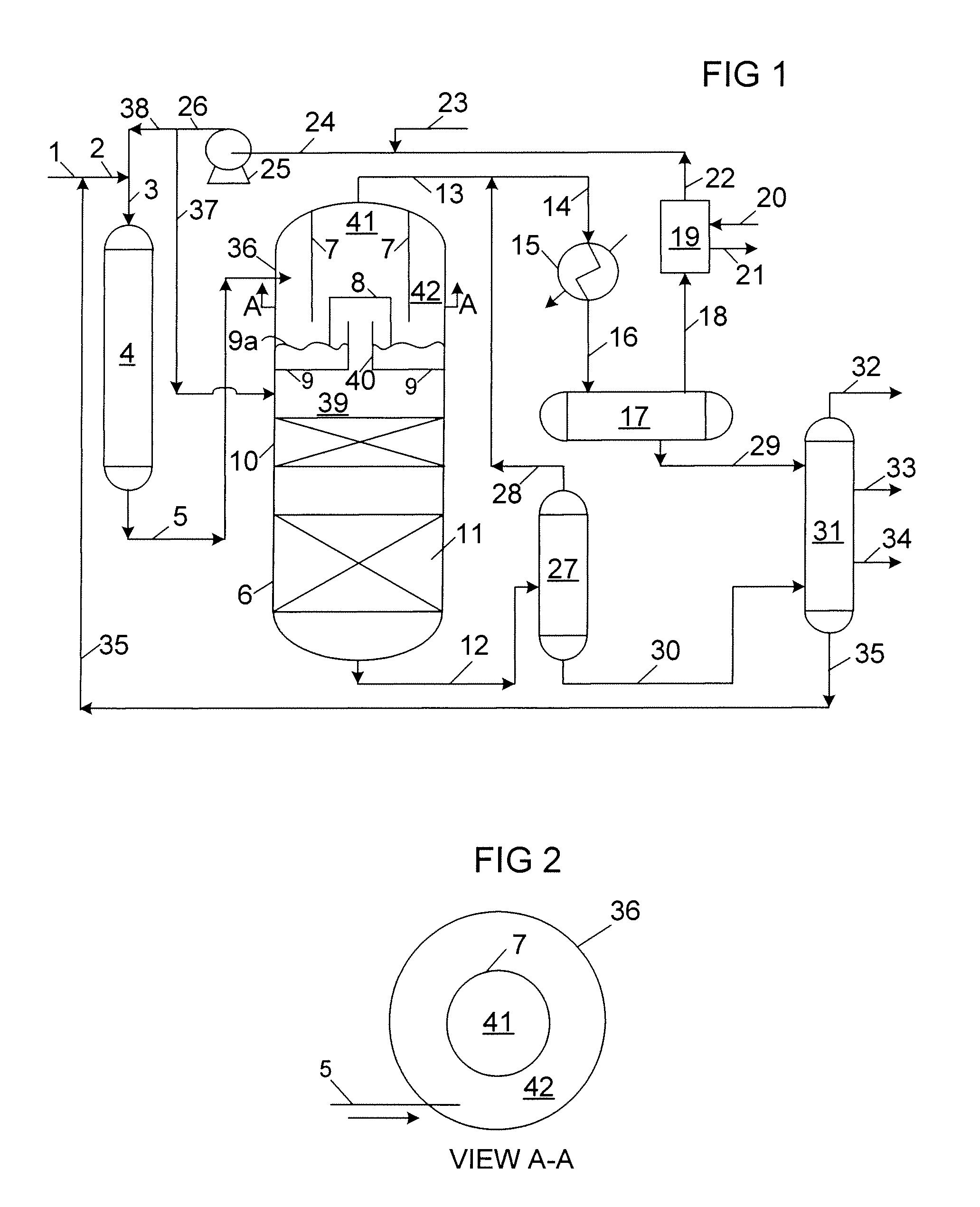Process for hydrocracking a hydrocarbon feedstock
a hydrocarbon feedstock and hydrocracking technology, applied in the direction of hydrocarbon oil cracking process, thermal non-catalytic cracking, effluent separation, etc., can solve the problem of reducing the function of the catalyst and reducing the effect of the catalys
- Summary
- Abstract
- Description
- Claims
- Application Information
AI Technical Summary
Benefits of technology
Problems solved by technology
Method used
Image
Examples
Embodiment Construction
[0015]The present invention is an integrated process for the hydrotreating and hydrocracking of heavy distillate hydrocarbon streams. Preferred feedstocks to the hydrotreating reaction zone include distillate hydrocarbons boiling at a temperature greater than about 371° C. (700° F.). A suitable feedstock is a typical vacuum gas oil normally boiling in the range from about 315° C. (600° F.) to about 565° C. (1050° F.). Distillate hydrocarbon feedstocks are most often recovered from crude oil distillation. However, distillate hydrocarbons may be utilized from any convenient source such as tar sand extract and gas to liquids for example. Furthermore, the distillate hydrocarbon feedstocks may contain from about 0.1 to about 4 weight percent sulfur or from about 0.05 to about 1 weight percent nitrogen.
[0016]In one embodiment of the present invention, a selected heavy distillate hydrocarbon feedstock is introduced into a hydrotreating reaction zone together with a hydrogen-rich gaseous st...
PUM
 Login to View More
Login to View More Abstract
Description
Claims
Application Information
 Login to View More
Login to View More - R&D
- Intellectual Property
- Life Sciences
- Materials
- Tech Scout
- Unparalleled Data Quality
- Higher Quality Content
- 60% Fewer Hallucinations
Browse by: Latest US Patents, China's latest patents, Technical Efficacy Thesaurus, Application Domain, Technology Topic, Popular Technical Reports.
© 2025 PatSnap. All rights reserved.Legal|Privacy policy|Modern Slavery Act Transparency Statement|Sitemap|About US| Contact US: help@patsnap.com


